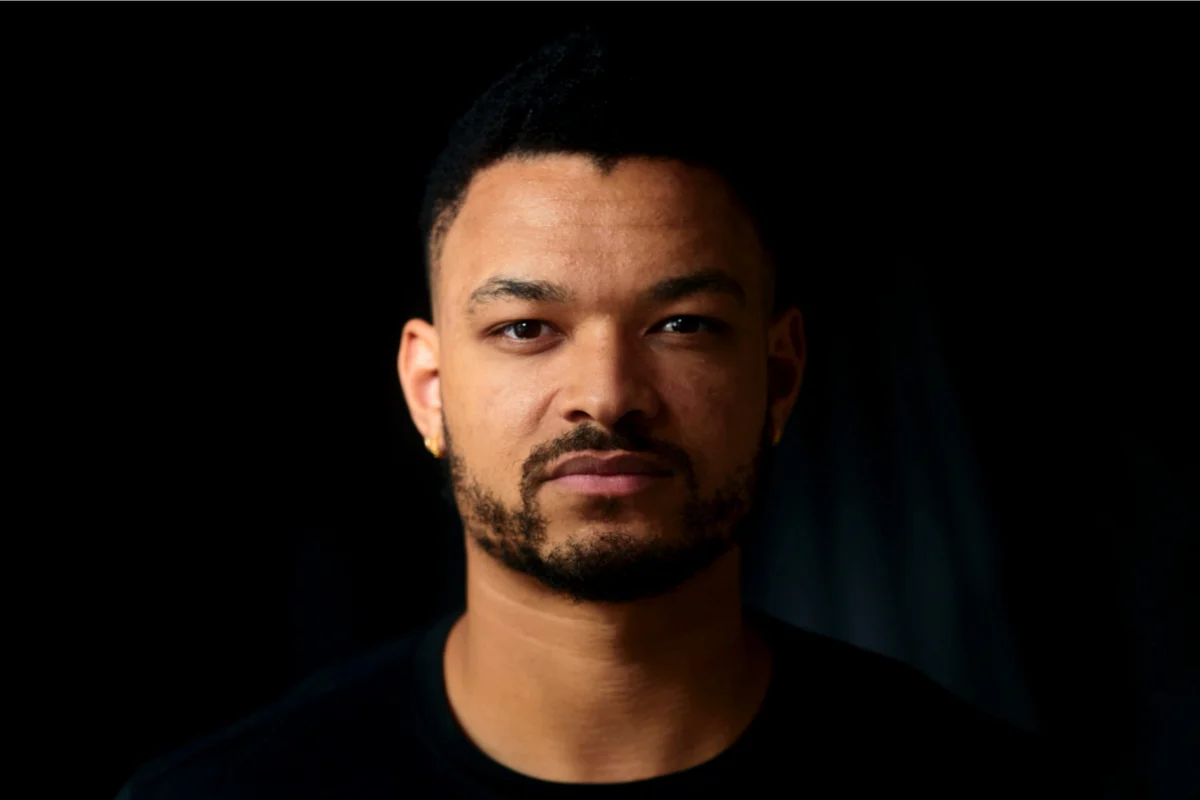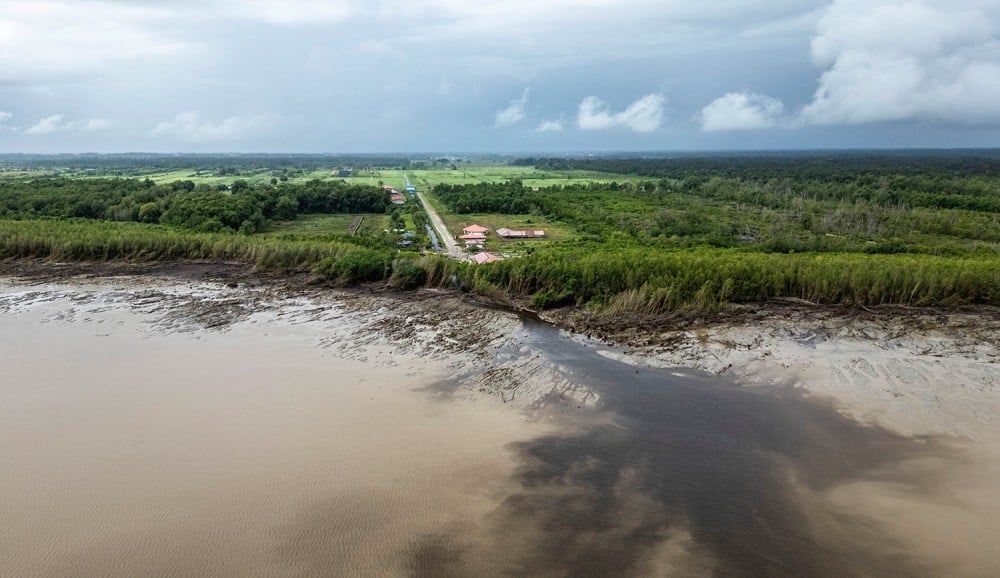Copyright standard

Growing up as a young boy in Plymouth, Steven Bartlett never felt like he was “enough”. A first-generation immigrant of British-Nigerian descent who left his birth country of Botswana aged two, Bartlett’s success was far from guaranteed. He wasn’t born with a silver spoon in his mouth (”We didn’t have a huge amount of money, didn’t have fancy things like holidays,” Bartlett has recalled); his parent’s weren’t particularly academic (his mother left school before she could read or write), and his meandering attention span made traditional education almost impossible (Bartlett has been diagnosed with ADHD). So, how does one define “enough”? If it’s money, the 33-year-old now has plenty of it, with an estimated net worth of £29 million, according to Forbes. Moreover, his latest venture, Steven.com, which owns all his media assets and creator ventures, was just valued at a whopping £320 million ($425m), thanks to help from KKR’s Philipp Freise, Antler’s Magnus Grimeland, and well-known biohacker Bryan Johnson. If it’s influence, Bartlett is pretty well set, as the host of one of the world’s most listened to podcasts, The Diary of a CEO (as per Spotify statistics) and the author of the fastest-selling personal development book (by the same name) since records began. If it’s proximity to power, he has rubbed shoulders with Prince William, Barack Obama, Boris Johnson, Gordon Brown and Richard Branson. And if it’s fame, Bartlett is one of the stars of the hit BBC show Dragon’s Den (when appointed in 2021, he was the show’s youngest ever panelist by a good distance) and he has interviewed the likes of Matthew McConaughey, Maisie Williams, Louis Tomlinson, Jimmy Fallon, and Thierry Henry. So, how does someone go from badly behaved schoolboy to university dropout to multi-millionaire? Before Bartlett became the face of British business, he spent his earliest years in Gaborone, Botswana, where he was born to an English father and a Nigerian mother. “I was born in Botswana and I came to the UK when I was about two years old,” he told GQ in a 2021 interview. “We weren’t a very well-off family... It was one of the key factors that I think shaped who I was.” Another factor was Steven’s skin colour. The entrepreneur has spoken consistently about feeling othered during his upbringing, during which he says he was one of the only people of colour in his 1,500-person high school. Recalling his experience to The Times in 2024, Bartlett said he was “constantly full of shame”. “I was chemically relaxing my hair,” he explained. “I was making every attempt to try to be as white as I possibly could be.” “I grew up in a home with a lot of love, but I remember feeling very different,” Bartlett divulged in a 2023 interview with the Guardian. “I was one of the only Black people in an all-white, middle-class area of Plymouth. We didn’t have a huge amount of money, didn’t have fancy things like holidays. The feeling of not feeling like I was enough became a driving force in my life.” During his childhood, Bartlett was kept on the opposite of a tight leash. His mum worked in a corner shop and his father worked as a structural engineer in London, spending five days a week in a different city. “Because I’m the youngest of four, I was given a huge amount of independence, to the point where my parents often weren’t in when I woke up or when I went to bed,” he has said. “I was treated like a 16-year-old when I was 10. That allowed me enough space to start running my own commercial experiments.” It was around age 16 that Steven started his first business enterprise, helping to sort school trips and parties while taking an agreed cut of the profits. “Then I started launching businesses on the internet at about 16 or 17”. Meanwhile, his grades were slipping, and he was expelled for failing to hand in homework or turn up to class. But Steven’s teachers soon realised his real value. “My headmaster said on Would I Lie to You?, ‘We un-expelled Steve because he made the school so much money”. Despite his resistance to traditional education, Bartlett tried his hand at university, enrolling at Manchester Metropolitan to study Business Management. He dropped out after one lecture. Reminiscing on this decision, Bartlett has observed: “I’ve just been diagnosed with overfocused ADHD. It wasn’t a surprise. It means I’m good at focusing on things I’m really engaged with, but I’m horrific at engaging with things I’m not interested in. That was the story of my education. I lasted one lecture at university and deferred. I’m still deferred now.” After he dropped out of university, Bartlett started an online messaging board called Wallpark in 2013, which aimed to connect university students from seven different UK cities. Wallpark wasn’t a hit, but it led him to the venture that would be. “In trying to figure out how to get people to come to my website, I tried flyers, posters, all facets of traditional marketing, and none of them worked. One day, I saw a Facebook group called ‘Things Manchester students don’t say’ and 8,000 or 9,000 students were on there,” he told GQ. “I needed students to come to my website, so I met the guy who started the page [and] gave him £50 [for it]. I posted about Wallpark there and it was the most traffic I’ve ever had. I went and acquired every [Manchester student] social media page I could and in doing that I realised its power very early.” At a time when the majority of brands didn’t have social media pages, Bartlett had already realised the value of social media marketing. This spawned Social Chain, the social media marketing agency that blew up Bartlett’s profile and made him a well-known name in the British business world. Bartlett co-founded the company with Dominic McGregor, the author of a popular comedic Twitter account called Student Problems, in 2014, and watched it rise. In 2019, when the company merged with German online retailer Lumaland to become The Social Chain AG and was listed on the Düsseldorf Stock Exchange, it was valued at over £200 million. Bartlett stepped down as CEO in 2020. A year later, Social Chain was valued at over £600m. In 2021, Bartlett was appointed to Dragon’s Den as the shows youngest ever dragon. “When I got the call, I felt a great sense of responsibility to say yes, because I knew that I could represent a new perspective,” he said after his appointment became public. “I’m of African descent. I’ve grown up in a digital world, on social media, using tools like Twitter, Facebook and Instagram to build my business. That’s what people are using these days to build their businesses and I wanted to have that perspective represented in the Den so when entrepreneurs walk through the door, they’re pitching to someone who really understands their world.” Bartlett has invested in numerous companies via his role on Dragon’s Den, including plant-based dog-food brand Omni, allergy-response start-up Kitt Medical and matcha energy-drink maker PerfectTed. The latter was a particular success, with PerfectTed reported as one of the fastest-growing founder-led businesses in the United Kingdom in 2025, with a valuation of around £140 million. Around this time, Bartlett’s podcast, The Diary of a CEO, started taking off. Contrary to some opinion, the podcast’s success was not instant, with Bartlett having launched the interview series way back in 2017. In 2021, his guests included Molly-Mae Hague, who sparked controversy with her “everyone has 24 hours in a day” comments, and Liam Payne, who gave a bombshell interview where he laid bare his experience in One Direction, sparking multiple headlines and spawning thousands of column inches. This seemingly instant growth was actually carefully considered. In an interview with The Times, Bartlett said it was “really, really difficult” to build a podcast audience due to podcast platforms’ inherently unshareable qualities (i.e no reshare or “retweet” buttons. Instead, he aimed for his podcasts to be talked about in newspapers, online, and in real-life conversations. “I really focus on creating an exceptionally compelling format that is likely to spread via digital word of mouth, WhatsApp and physical word of mouth,” he said. “Podcasting is like the last bastion of long-form attention,” Bartlett said. “For me, it’s like one of the last places you can get really, I think, high engagement, long-form attention.” His podcast, which started as a passion project “from [his] kitchen in Shoreditch”, now employs 32 staff, with an aim to expand past the 100 mark very shortly. He has said he expects The Diary of a CEO podcast to make revenues of £20 million this year, mainly from advertising. Bartlett has also just closed an eight-figure investment round for his company steven.com. At $425m, it’s believed to be Europe’s biggest ever creator holding company funding round. The 33-year-old entrepreneur currently resides in Canary Wharf and spends much of his time working or in the gym. Of the little known about his personal life, we can gauge that he spends time with his girlfriend, Melanie Vas Lopes, and enjoys listening to Fred Again and watching YouTube in his spare time. But there isn’t a lot of that — Bartlett wakes up at 9am, starts his meetings by 11am, and works until 9pm before turning in again for the day. And that’s the Diary of a CEO.



